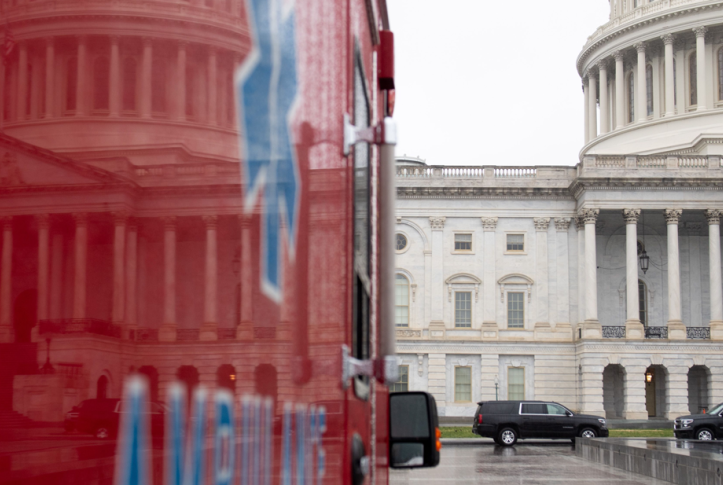Note: On December 22, Congress passed the surprise billing legislation as part of H.R. 133, the Omnibus Appropriations and Emergency Coronavirus Relief Act — the large legislative package that closed out the 116th Congress. This update reflects changes made to the surprise billing provisions after the agreement was announced on December 11.
On December 11, leaders of four congressional committees (Senate HELP Committee; and House Committees on Education and Labor, Energy and Commerce, and Ways and Means) announced a comprehensive bipartisan, bicameral agreement on the No Surprises Act — legislation to protect consumers from surprise medical bills. Federal legislation has been under consideration for more than a year, but prior efforts were stymied, in part because of intense lobbying by private-equity-backed interests, even as the need for comprehensive patient protections was made more urgent by the pandemic.
States have moved forward; 17 have adopted comprehensive legislation. But states cannot regulate health plans that are self-funded by employers and thus cannot fully protect all consumers. States are also restricted from regulating air ambulances, a common source of costly surprise medical bills. Federal legislation will therefore extend surprise medical bill protections to more than 135 million people estimated to be covered by employer self-funded plans, as well as millions more in states without protections.
The new legislation, effective in 2022, will protect consumers from surprise bills for: 1) emergency services delivered by out-of-network providers, including emergency air transport, or by out-of-network facilities; and 2) nonemergency services provided by out-of-network providers in network facilities and for which patients do not consent. Consumers’ costs will be limited to cost-sharing amounts that apply to in-network services; providers are banned from billing for any higher amounts.
Establishing Payment Amounts
The compromise combines elements from the separate committee bills, but tilts toward the Ways and Means version, which has been the preferred approach of hospitals, physicians, and other providers. In particular, it excludes use of a payment standard to establish the amount paid by insurers to out-of-network providers — the approach followed in the other committee bills. Instead, it relies on voluntary negotiations between insurers and providers, backed up by independent dispute resolution (i.e., arbitration) if negotiations fail. For states with laws in place, the bill defers to state rules on establishing payment amounts, even if the state has a payment standard.
Insurers, employers, and consumer advocates have raised concerns that the absence of a payment standard can have inflationary effects if dispute resolution leads to settlements well above the amount insurers typically pay in network. The compromise addresses this concern with some key guardrails on the arbitration process. Most important, the bill instructs the arbitrator to consider the median in-network rate paid by the insurer — and not a provider’s higher billed charges — in selecting between the amounts submitted by the two parties. In addition, the losing party must pay the cost of arbitration as an incentive against seeking arbitration for weak cases.
Emergency Transport Services
These protections are extended to people using air ambulance services, who are at risk of incurring large surprise bills. The Airline Deregulation Act prohibits states from regulating air ambulance prices, meaning federal action is needed to protect consumers in every state. Payment amounts are established by the same combination of negotiation and arbitration. In addition, there is a new requirement for reporting air ambulance costs and claims data.
One remaining gap is for ground ambulance services, which are operated by a mix of private and public entities. The legislation does, however, establish an advisory committee to make recommendations on establishing protections.
Consent Waivers
The legislation allows certain out-of-network providers to seek written consent from patients that then allows them to send balance bills. This consent option is limited to nonemergency services and not allowed for specialties such as radiology, anesthesiology, and neonatology that commonly send surprise medical bills. Together with other provisions, this consent waiver protects consumers better than those in many state laws.
How Well Will Arbitration Work?
The incoming administration will need to help ensure that arbitration will work fairly and discourage settlements that could be inflationary. Federal officials will have to establish a list of eligible arbitrators and help interpret the factors that will guide arbitrators’ decisions. The legislation has numerous reporting requirements, offering further opportunities to identify implementation problems.
Looking Forward
There has long been agreement that consumers should be held harmless when treated by out-of-network providers by no fault of their own, but federal policymakers have struggled to reach consensus on establishing payment. With this compromise, the legislation will usher in historic protections for millions of consumers while promoting financial stability and reducing health costs. However, the full effects of the legislation on patients’ access to and quality of care, and health care costs more generally, will need to be evaluated over time.
Summary of the No Surprises Act
|
Topic |
Provision |
|
Settings covered |
Emergency and poststabilization care and nonemergency care in in-network facilities; applies to fully insured and self-funded plans. Includes air ambulance services; advisory committee to study ground ambulance services. |
|
Holding consumers harmless |
Limits consumers to in-network cost-sharing, deductibles, out-of-pocket maximum. |
|
Ban on balance billing by providers |
Applies to providers and facilities. |
|
Payment standard |
None, although median in-network rate (2019, inflated for future years) is used for determining cost-sharing. |
|
Dispute resolution process |
Independent dispute resolution process if parties do not reach a voluntary agreement in a 30-day negotiation period. Arbitrator must pick one of the amounts submitted by the parties. Loser pays the cost of the arbitration. |
|
Factors considered in dispute resolution |
Factors allowed: median in-network rate; information submitted by the parties; training, education, experience, and quality; patient acuity and complexity of services; market share; efforts to join network; prior contracted rates. Factors prohibited: usual and customary or billed charges; rates paid in public sector programs, such as Medicare and Medicaid. |
|
Interaction with state laws |
Defers to state payment standard or dispute resolution process for state-regulated group and individual plans. |
|
Enforcement |
State enforcement; federal enforcement as fallback. Federal enforcement through civil money penalties. |


